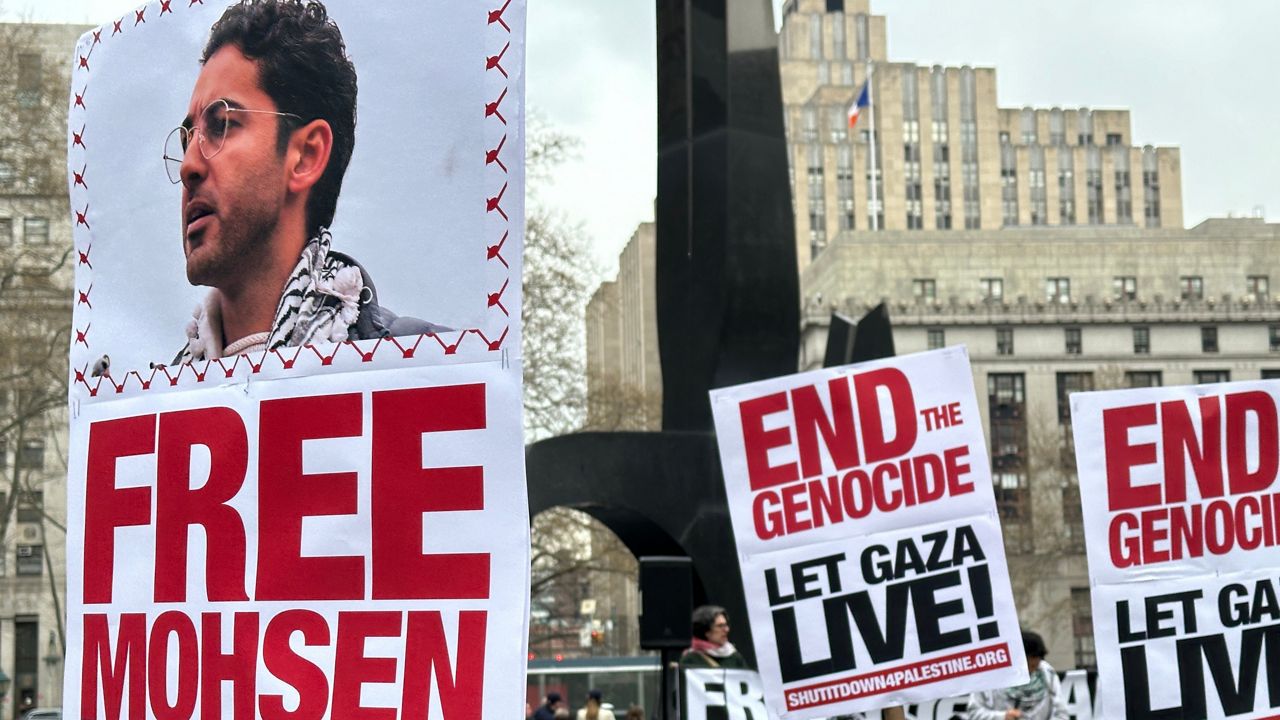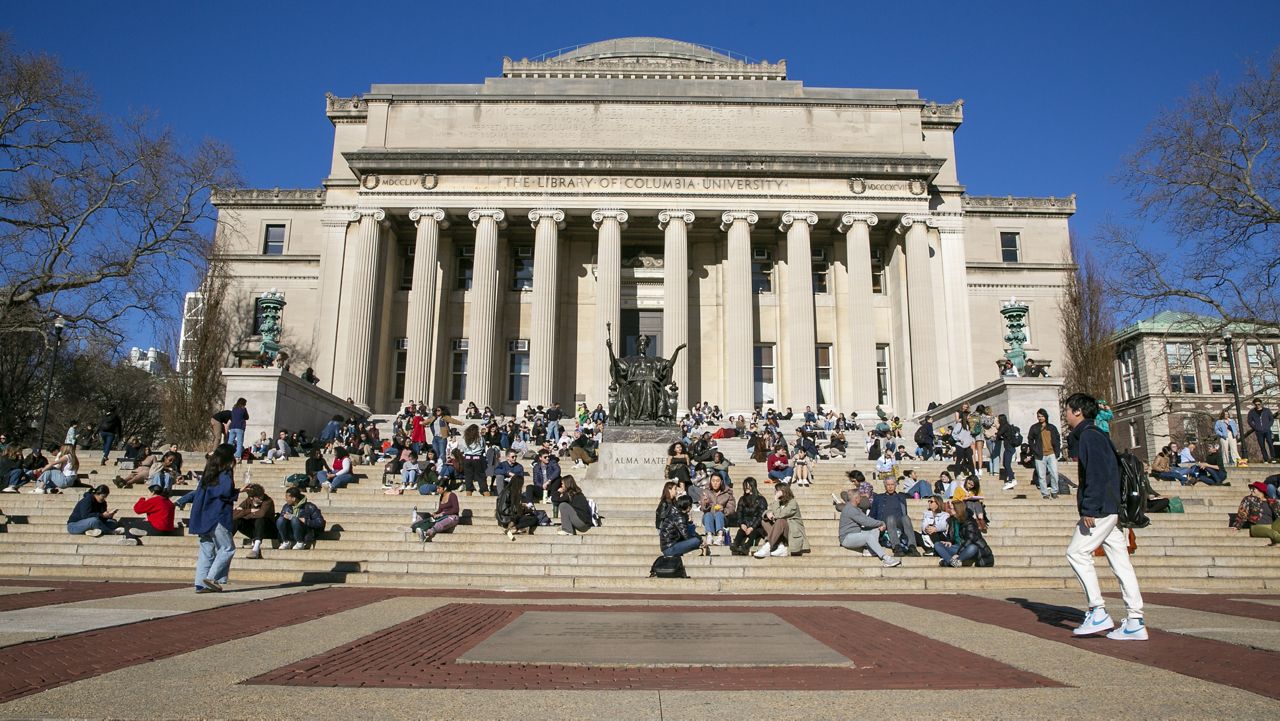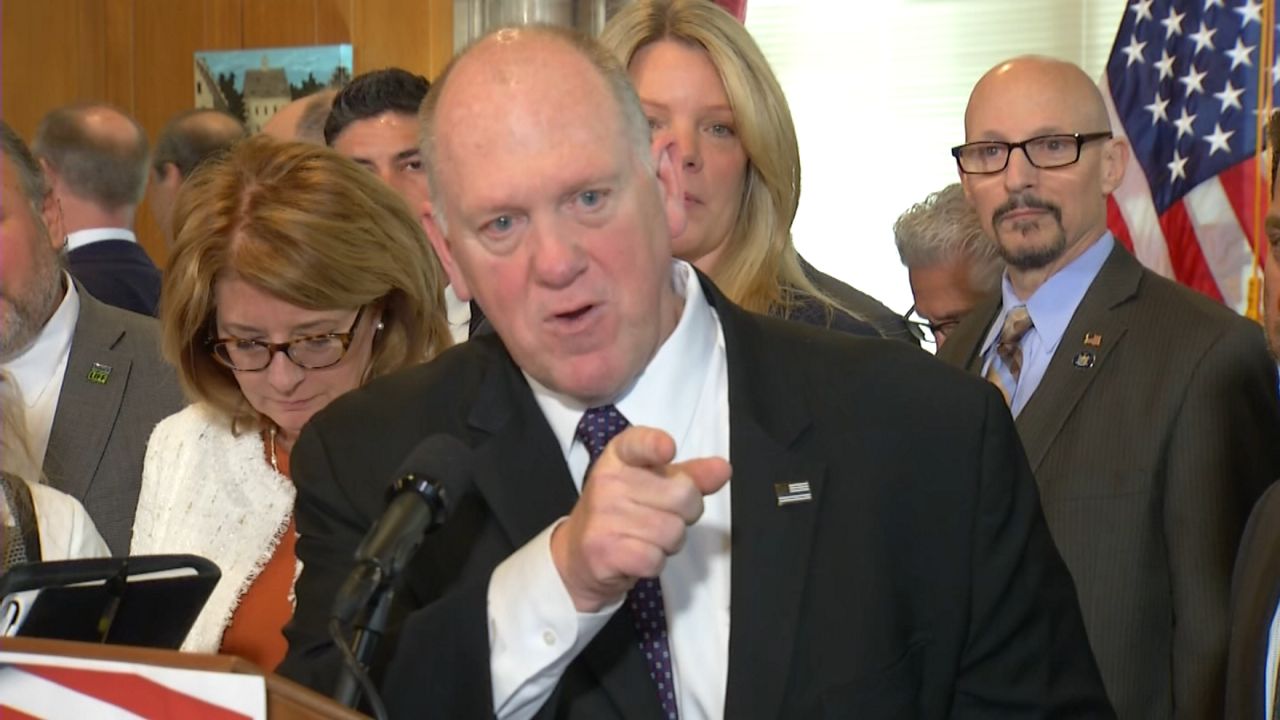The city and the Legal Aid Society came to an agreement on Friday to change it over the city’s longstanding right-to-shelter law.
The right-to-shelter requires the city to provide a bed to anyone in need but, city officials were looking for a reprieve amid the influx of migrants.
“We never asked to get rid of the right-to-shelter. We never said that the right-to-shelter wasn’t important. What we said is that we needed some modifications so that we could have some flexibility to be able to manage,” Deputy Mayor of Health and Human Services Anne Williams-Isom said.
Under the agreement, the city will give single migrants 30-day notices without the ability to re-apply for a bed except in cases of “extenuating circumstances” or exceptions like a disability.
“An extenuating circumstance could be a situation where you are suppose to leave. However, you’ve signed a lease and you need 10 days to go,” said the city’s Corporation Counsel Sylvia Hinds-Radix.
City officials said they will make exceptions on a case-by-case basis.
Plaintiffs in the case, the Legal Aid Society and the Coalition For the Homeless, applauded the agreement.
“Whether you come from the southern border or you’re a longtime New Yorker, no one wants to see you on the street,” Steve Banks, co-counsel to the Legal Aid Society, said.
“We are relieved that the legal fight is over, and that there is a now a framework to protect new arrivals under this temporary crisis plan,” David Giffen, executive director of the Coalition for the Homeless, said.
Under the agreement, the city would have to eliminate their “waiting rooms” where they placed migrants overnight who were waiting on a bed. City officials will also have to eliminate the backlog of migrants waiting for a bed at St. Brigid.
Currently, there are about 2,700 single migrants waiting for a bed.
“It ensures that we end the practice that we’ve seen over the last several weeks of people being forced to spend the night in chairs or outside, waiting days and days, even a week for a bed,” Josh Goldfein, staff attorney at the Legal Aid Society, said.
One part of Friday’s agreement will also require the city to increase their case management to help migrants live independently.
“In each case, they are going to meet with a person and say ‘what have you done?’ They are going to give you as you come in a packet, and the packet is going to say, here’s are all the things you can do to try and move on. And then they will meet with you at the end and say ‘look we gave you this packet. What of these things did you do?” Goldfein said.
The agreement is only temporary. It will only last the length of the crisis, which could be determined by both parties of the agreement in court or if Mayor Eric Adams doesn’t renew his executive order declaring the influx of migrants a crisis.
The Legal Aid Society and the Coalition for the Homeless will be monitoring the city’s obligations under the new agreement. The city will be required to report to them regularly.









